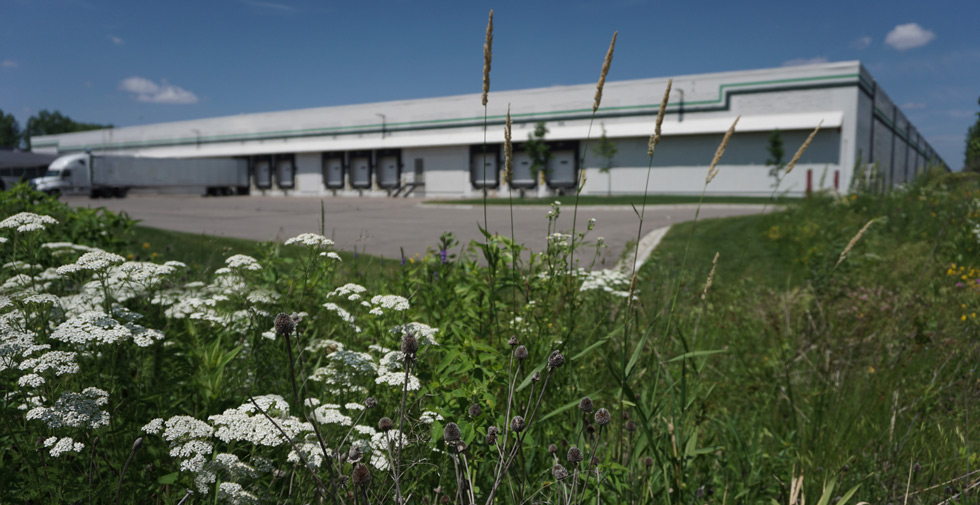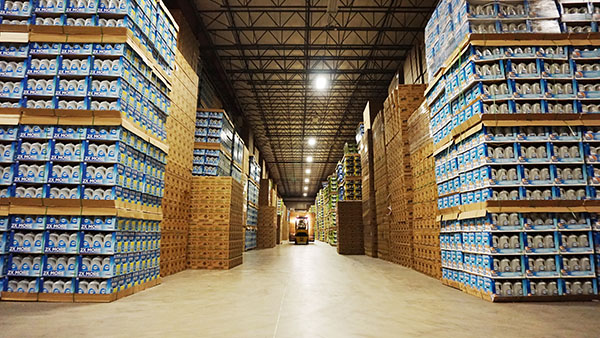The supply chain industry is both vast and dynamic. In fact, trusted predictions have the growth of the supply chain management sub-industry annually growing at a rate of 17.3% per year from now until the end of the decade. There’s no denying that to successfully serve the supply chain, a company needs to provide next level solutions, support, and tracking from beginning to end.
When it comes to next level supply chain solutions, the foundation of any successful strategy is warehousing and logistics.
What is warehousing?
Warehousing, by definition, is the process of storing goods to be sold or distributed at a later date. On a small scale, this can be as simple as a retail business keeping excess stock in the back room. On larger scales, however, warehousing is a process that can involve many different facilities that require their own unique management, tracking, and beyond.
Warehousing is more complex than it might seem at first glance. The practice itself can include a lot of specific, sometimes custom solutions. For example:
- If a business needs to store consumables, they’ll be in need of specialized bulk or racked food grade storage solutions.
- Storage solutions that offer climate control can be integral for businesses that need to store sensitive items like electronics, paper goods, pharmaceuticals, laboratory products, or commodities needing refrigeration.
- Security and management features to allow for the storage of specialty items including but not limited high dollar products, sensitive materials, or uniquely shaped objects.

What’s the difference between warehousing and using a distribution center?
If you’re reading content covering the topic of warehousing and logistics, you might find yourself seeing the terms “warehousing” and “distribution center” used interchangeably. While very similar, the two have one main difference: warehousing is focused on the storage of goods, where distribution centers do that and fulfill orders as well.
What is supply chain logistics?
Logistics is a service umbrella that supports the procurement, management, distribution, and tracking of merchandise. It’s a small part of the very large world of supply chain management.
When seeking a company that offers logistics solutions, these are the qualities you’re going to want to look for:
- The ability to use different modes of transport based on your unique needs. If you need logistical help getting your product from point A to point B, you’re going to want it to happen as efficiently as possible. That’s most likely to happen when you partner with a company that offers more than one way to transport your goods. Fleet trucks, commercial rail, partner programs to provide truck access nationwide, and more, should all be accessible to you.
- Solutions that are customizable. Your business is one of a kind, which means no one-size-fits-all solution is going to work. Instead, look for a warehousing and logistics company that is willing to apply their strategies to your needs in order to create a perfectly successful, perfectly custom end solution.
- A broad scope. Even if you’re just shipping within the United States now, it doesn’t mean that you’ll always be. To allow for future growth, start out with a logistics and warehousing company that already has global infrastructure in mind. Some companies even operate central examination stations (CES) where U.S. Customs officials can conduct inspections and clear them for import or export on site!

While warehousing and logistics are two different functions of a successful supply chain service provider, they can’t live without one another. Products can’t be processed and delivered if you have no place to store them and, on the flip side, you can’t store materials if you have no way of moving them.
Murphy Logistics understands how these two functions work together to deliver business success. Get in touch with us today to learn more about how we can work together to develop the perfect warehousing and logistics solution for your business.

